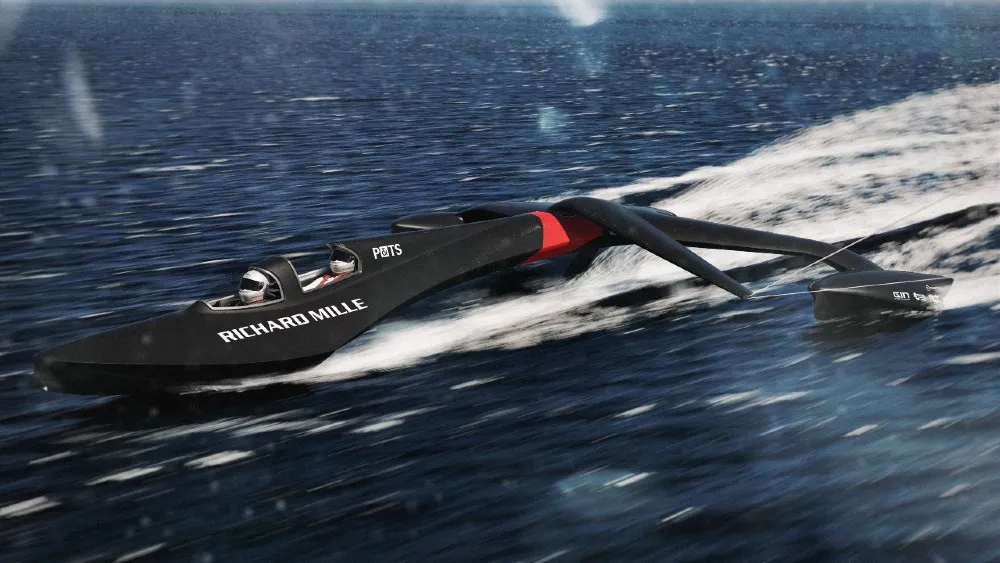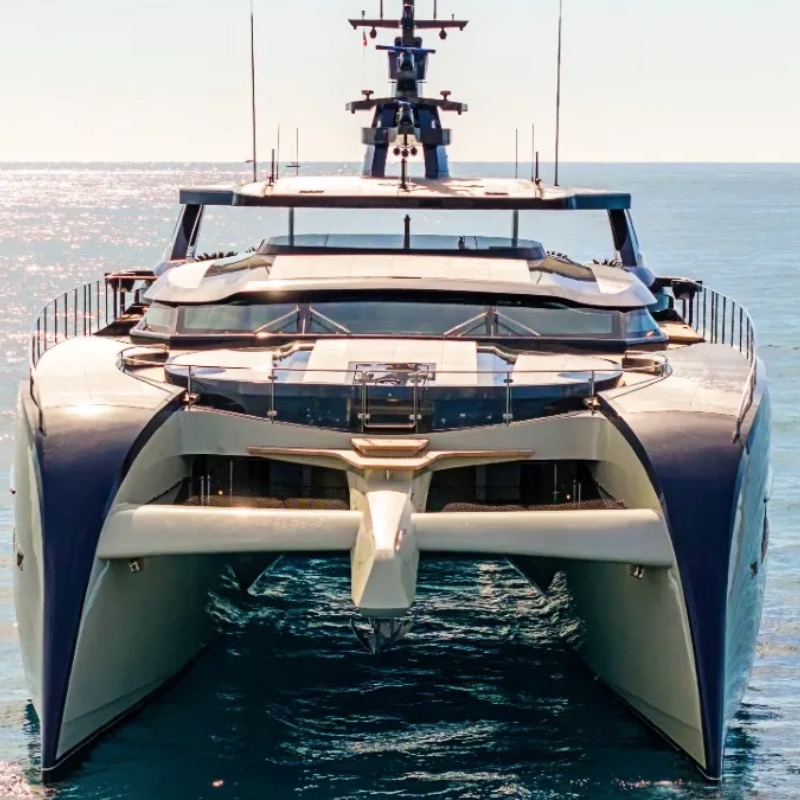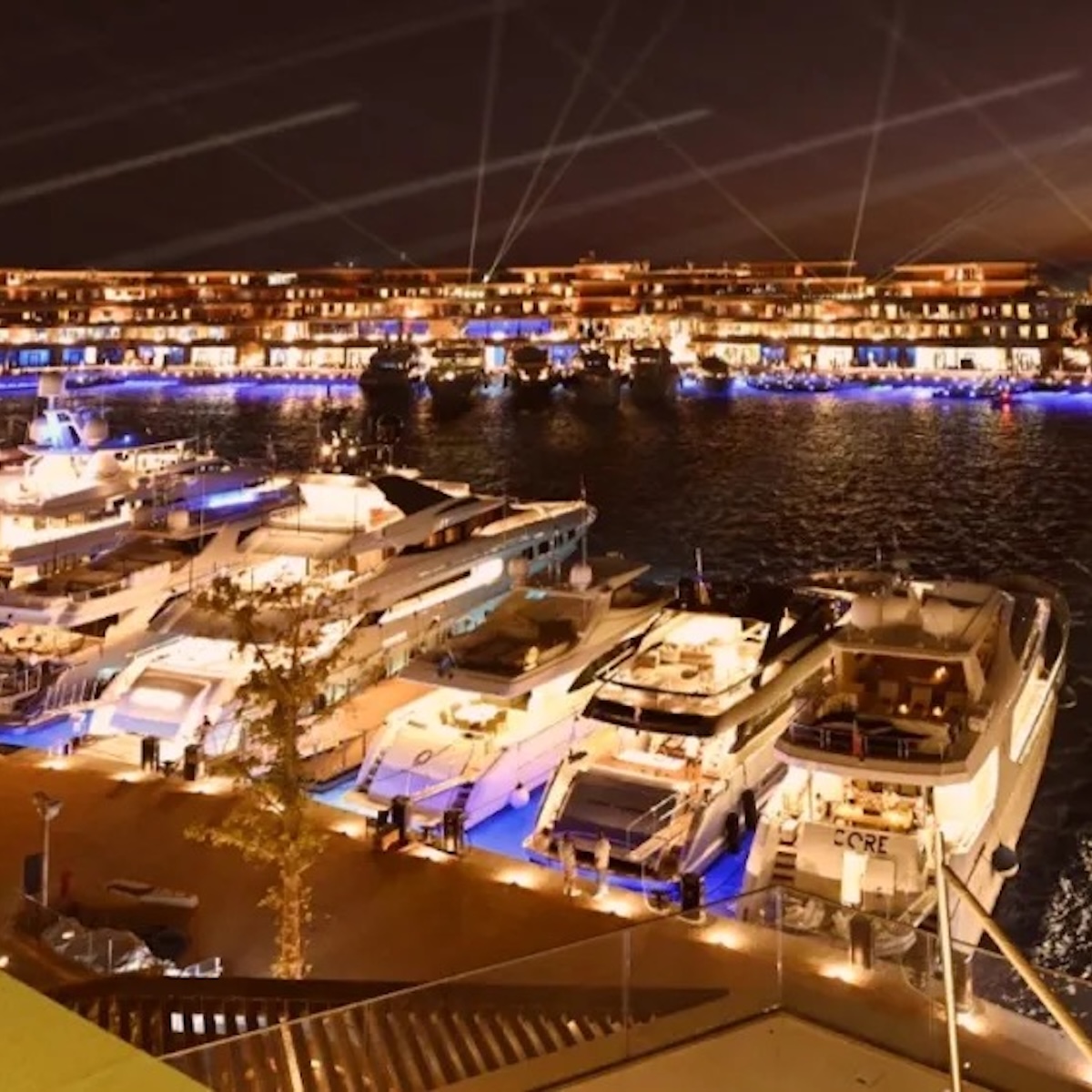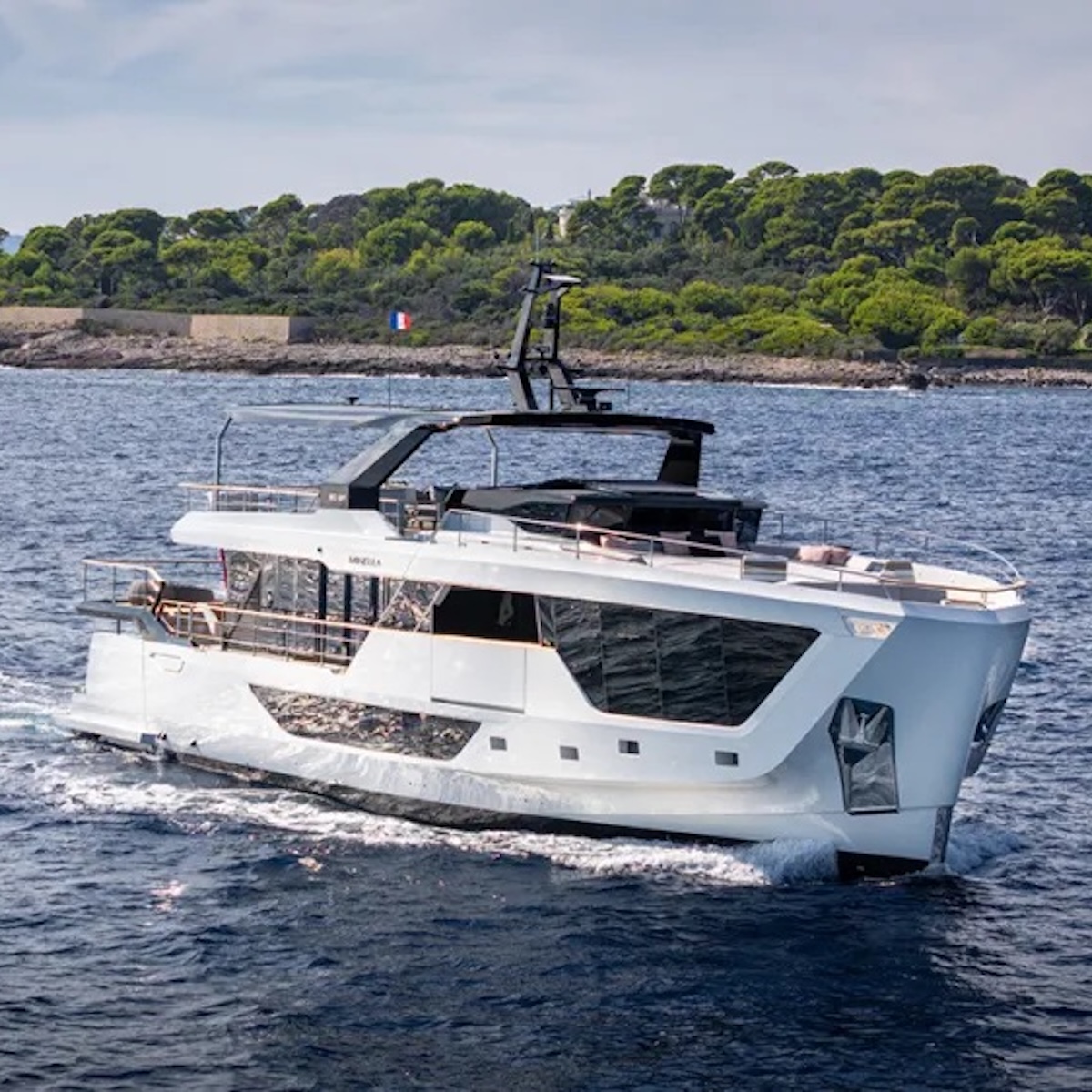At the Monaco Yacht Show, surrounded by hundreds of huge new superyachts worth many billions of dollars, sits a slender, 33-foot-long trimaran. With sponsons on both sides that give it a beam of just over 19 feet and a small enclosed cockpit for a pilot and co-pilot, the boat has a futuristic look, almost like a spaceship.
But the SP80 is actually more like a kiteboard, or at least designed to operate like one, with an oversized kitesurfing sail that will, at least theoretically, propel the boat to a record of 80 knots, or 92 mph, powered only by the wind.
Despite its sponsorship by watchmaker Richard Mille, the SP80 initiative is a start-up started on a shoestring by three friends—Mayeul van den Broek, Xavier Lepercq, and Benoit Gaudiot—who, in 2016, decided they wanted to break the 80-knot mark. This Switzerland-based group, now up to a dozen people, will go after the water-speed record of 65.45 knots, or 75 mph, set by Australian Paul Larsen in 2012. But when is not exactly clear.
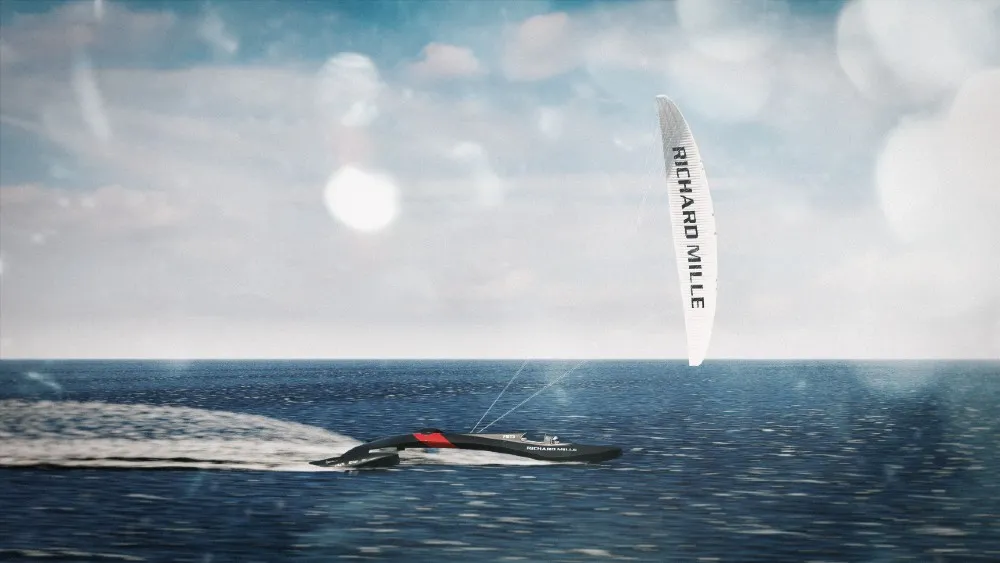
SP80
The team is employing an unproven concept by combining the massive kitesurfing sails with an experimental hull that weighs just 330 pounds. They know they need to proceed slowly. There is just one boat and much could potentially go wrong.
The team spent more than two years and 40,000 hours designing the trimaran concept, with multiple variations on the computer. It took another two years to complete the build. This week, the SP80 is at the Monaco Yacht Show, attracting oohs and aahs, and many selfies, especially with a Richard Mille poster in the background. In the next two weeks, the vessel will undertake sea trials in the French Mediterranean, after its initial launch in Lake Geneva in Switzerland earlier this year. That first launch included a successful tow test behind another boat.
“We’re really at the beginning of the testing,” Lepercq, who designed the hull and sail plan, told Robb Report. Under a shortlist of rules for breaking the record, the SP80 is not allowed to use the same type of electronics or battery banks to adjust the sails and foils as the modern America’s Cup or SailGP fleet do—even though the SP80 is facing far higher loads on the sails. The rules limit it to only wind power.
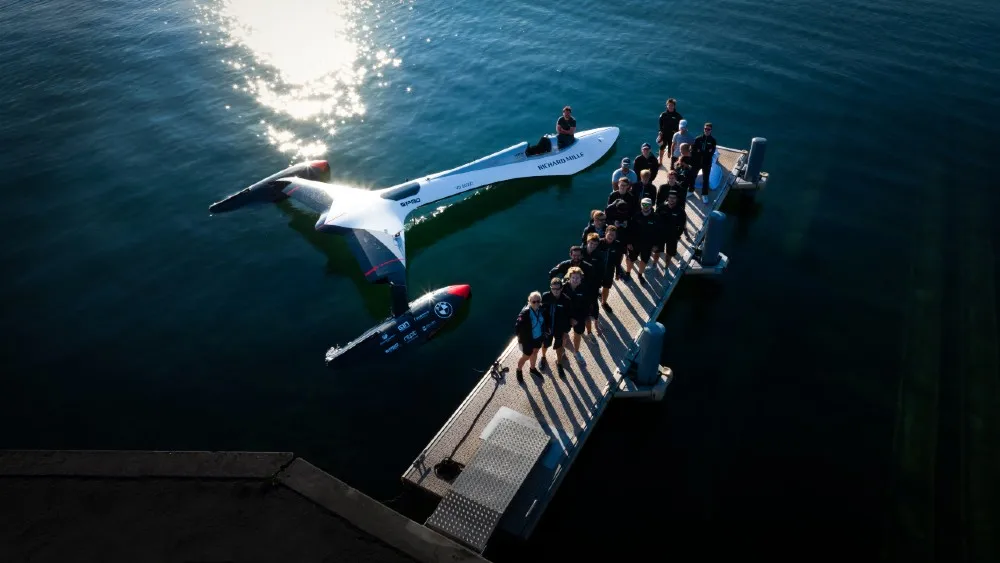
Laura Menon
The foiling system under the hull works directly with the sails via a system of lines and connectors that link and coordinate the two systems. When winds are strong enough, the sails propel the boat to its planing speed of 12 knots and the hull lifts on its single foil. “It’s designed to be self-stabilizing,” says Lepercq. “But it’s also very fast and once it gets going, the pilots need to react very quickly.”
The two pilots, in fact, are moving at what could be considered hyperdrive on a boat this small, in conditions that could prove dangerous, possibly deadly. The cockpit is edged in Kevlar, which won’t splinter like the carbon-fiber hull if there’s a crash. The forward pilot steers the boat, while the rear pilot trims the sails, watching a small display to gauge the position of the sails.
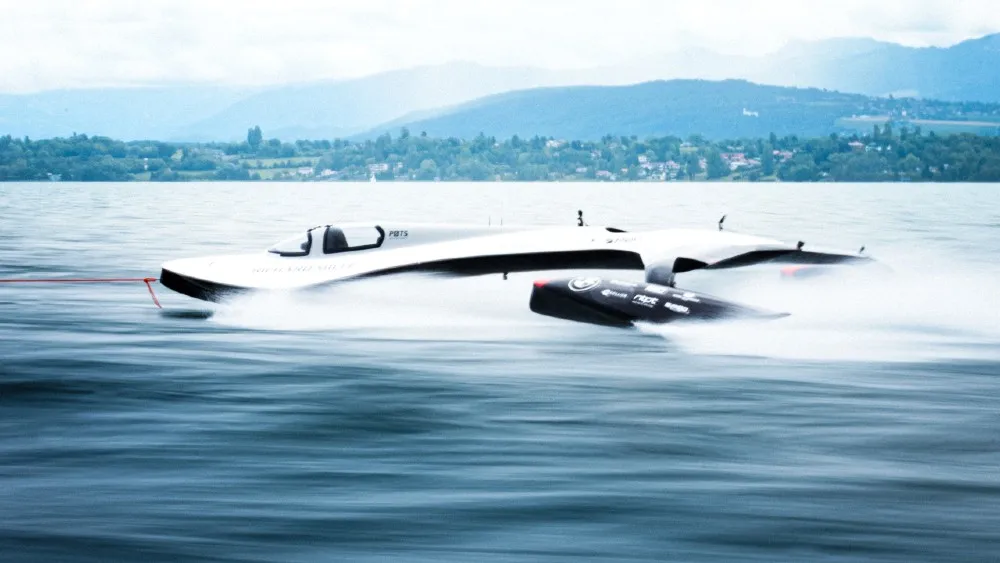
SP80
Both are equally important for handling the boat. Unlike a conventional sailing rig, there is no mast, just the connection with the powerful kitesurfing sail. “You want a really experienced kitesurfer like Benoit handling the sails because he understands the dynamics at these speeds.”
Despite the financial constraints, the team has built a high-strength, carbon-fiber vessel designed to take the shocks and stresses at high speeds. Lepercq says he’ll be relieved when the boat proves it can come on plane and, after the few initial water tests, it has required tweaks rather than overhauls. He says the speed run will happen when the boat is ready, probably some time next year.
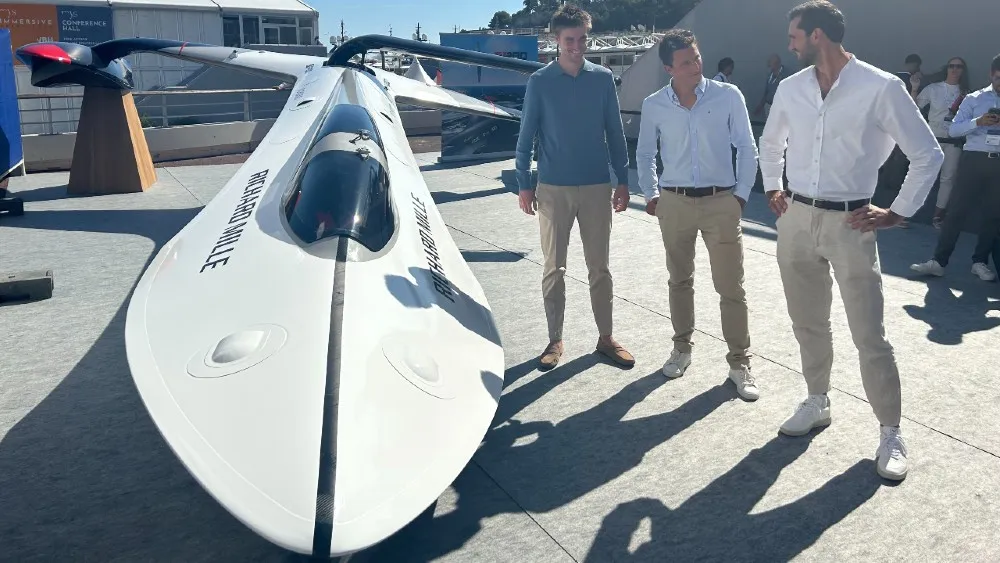
Laura Manon
But there may be other deadlines that force faster action. The team has a French competitor, Syroco, that will employ a kitesurfing sail that actually lift the vessel above the water. But it will be held down by a long fin below the surface that serves as a sea anchor.
The two teams share a connection which, due to the kite-surfing connection, makes sense. Gaudiot’s brother, Thomas, is an engineer on the Syroco team. Lepercq said he expects a third competitor, Glenn Ashby, who is part of the America’s Cup team Emirates New Zealand. Ashby earlier this year broke a land-speed record in an unpowered vessel with a sailing rig on wheels. He was aided by his America’s Cup colleagues.
It’s not clear which team will eventually be first to break the record. But in terms of getting many new eyes on the boat, SP80 was a hands-down winner in Monaco.





